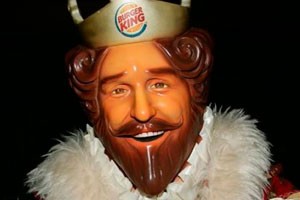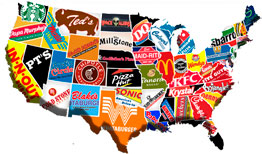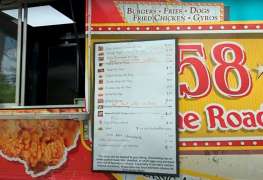 Back in the mid-2000s, Burger King had a really unnerving ad campaign where a man in a plastic Burger King mask breaks into people's houses and watches them sleep. Over in the New Inquiry, Adam Kotsko uses the skin-crawling mascot, the King, as a jumping-off point to discuss the history of creepiness.
Back in the mid-2000s, Burger King had a really unnerving ad campaign where a man in a plastic Burger King mask breaks into people's houses and watches them sleep. Over in the New Inquiry, Adam Kotsko uses the skin-crawling mascot, the King, as a jumping-off point to discuss the history of creepiness.
Kotsko's essay, an excerpt from his forthcoming book on creepiness, explains how the term sort of dovetails with Freud's concept of the Uncanny, as explained in a famous 1919 essay:
Freud detects an ambivalence in the term, which etymologically seems to refer to what is unfamiliar (what we are not at home with) but experientially most often involves something that is all too familiar, something that fits too well.
Here we can see the appropriateness of the English translation "uncanny," which we might invoke to describe a coincidence or an unexpected resemblance. Most of Freud's examples, however, involve horror at the supernatural, which is not a context where we would normally use the word "uncanny." And indeed, Freud surveys various European languages and concludes that there is no language other than German that unites the various meanings of unheimlich in a single term.
Looking over Freud's suggested possible translations ofunheimlich into English, however, I wondered whether we have finally caught up with the Germans in this regard. Collected from various dictionaries, they include "uncomfortable, uneasy, gloomy, dismal, uncanny, ghastly; (of a house) haunted; (of a man) a repulsive fellow." Today, we do have a single word that encompasses all of those meanings: creepy, which is associated at once with ghosts and the supernatural, with vaguer forms of discomfort, and with particularly off-putting individuals like The King.








Leave a comment